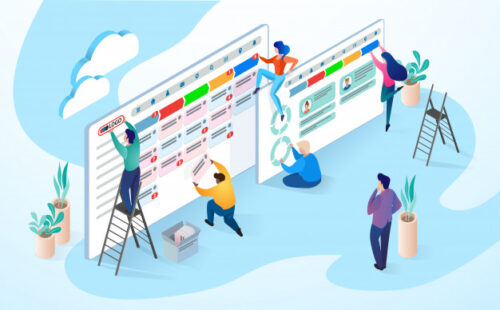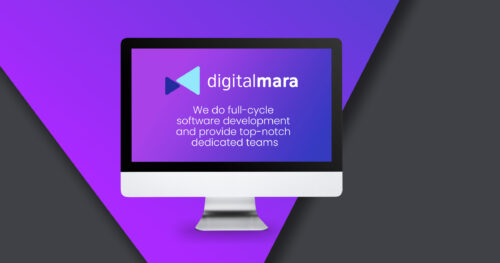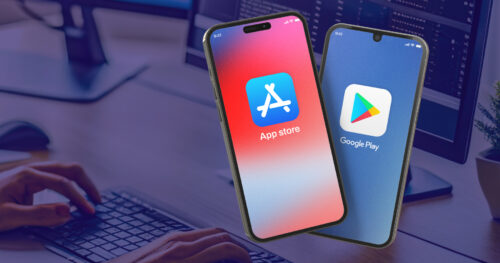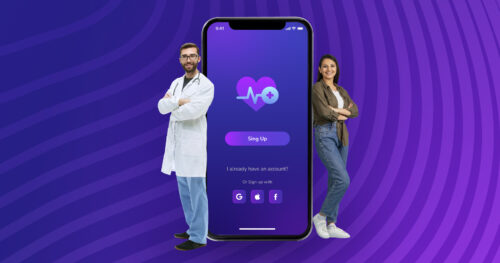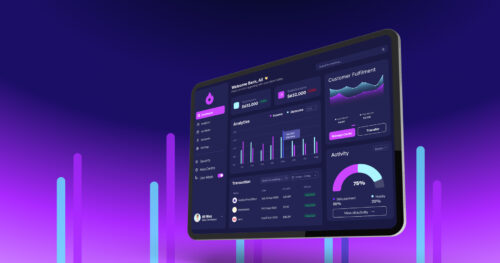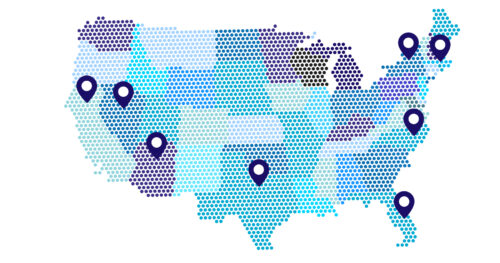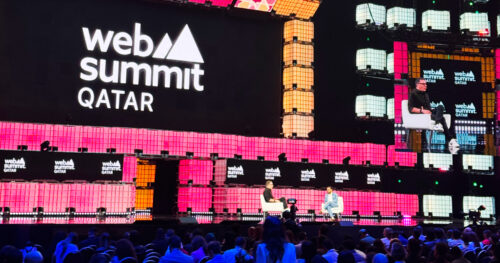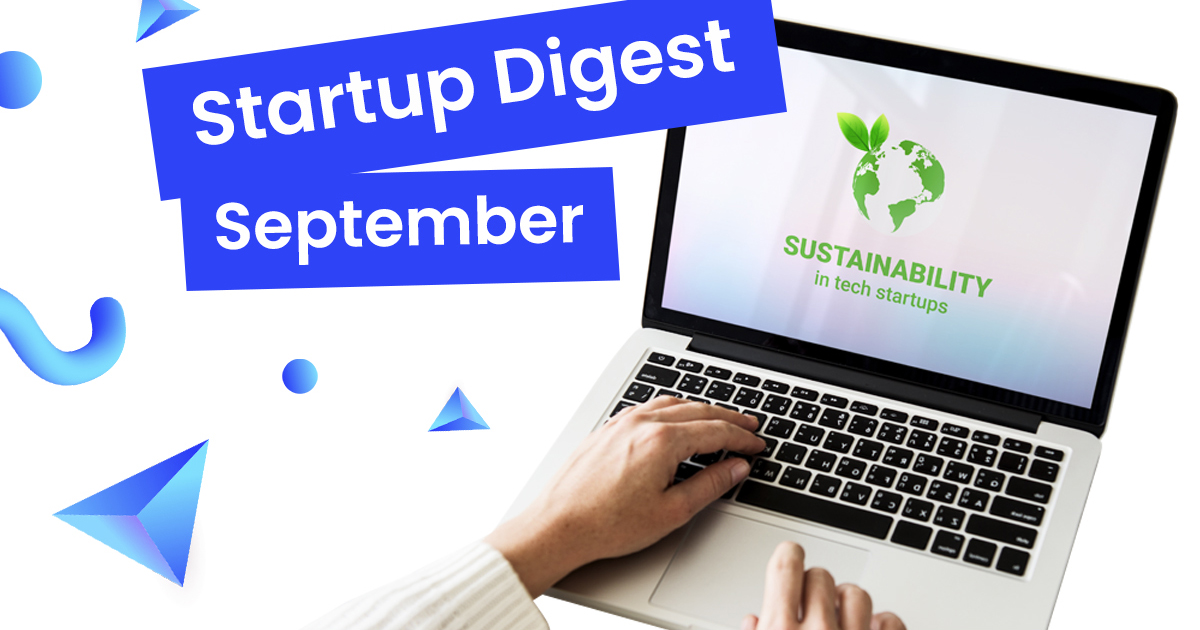Consumer demand for mobile apps is growing. Thanks in part to the pandemic impact, people want many aspects of their daily life to flow through their mobile device, such as entertainment, sports, finance and even healthcare. In response, the mobile development market is rising and is expected to reach $44.3 trillion by 2027.
Mobile startups are looking for tools to help them build mobile apps more easily and resourcefully: IDEs, low code development, templates, APIs, forms, integrations, chatbots, analytics and much more. Such tools make it possible to reduce the time it takes to develop an app, accelerate the progression from prototype to market launch, create a smooth and friendly workflow, and improve UI/UX.
There are a bunch of free and paid tools that can help startups. Based on mobile app trends, we’ve reviewed several tools that can help simplify the development process and enhance user experience.
1. AI-driven chatbots
Chatbots are effective in resolving customer service issues and driving sales. AI helps tune the communication flow and make responses quicker and more personalized. Smart bots can be used in the banking sector, social media apps, telecommunications, and mobile commerce apps. Using a chatbot, mobile app users don’t need to wait hours for a response from customer service and can make quicker decisions.
AI-driven chatbots are context-aware and can learn continuously from prior interactions. They can enhance communication with app users by leveraging face and voice recognition, sentiment analysis, and semantic search technologies.
Tools to develop AI chatbots: LivePerson, GENESYS, REVE Chat
iOS and Android
LivePerson offers a conversational AI platform to manage and automate all consumer conversation in one place. Conversational AI combines natural language understanding, natural language processing and machine-learning models to power human-like interactions through automated messaging and voice-enabled applications.
- Intent manager analyzes consumer behavior, and received data are used to optimize conversation flows.
- Point-and-click chatbot builder interface makes the process easy.
- Library of prebuilt conversation templates for different use cases across multiple industries
- Allows building custom conversation flows
- Integration with back-end systems, CRMs, scheduling tools, order and inventory management systems, payment platforms, and more
- Built-in analysis assesses the efficiency of the bot and allows it to adjust conversations.
- Available in 44 languages
Pricing: free trial, starting from $40 per month.
iOS
GENESYS is an AI-powered engagement platform to help custom support and sales agents. The platform is based on patented natural language processing technology that can understand customers’ intent without needing to match keywords.
- Field-level validation and connecting with existing back-end or third-party systems
- Intuitive drag-and-drop flow builder
- Built-in dialog management
- Integration with back-end and third-party systems
- Intent miner surmises intent from actual conversations and digital interactions and provides insights to improve conversations
- Automatically transfers the conversation to an agent
- Available in 40 languages
Pricing: upon request.
iOS and Android
REVE Chat offers an AI-powered chatbot that comes with live chat and co-browsing features. Based on natural language processing and machine learning technologies.
- REVE Chat SDK to integrate chatbot with mobile app
- Chatbot templates for different use cases across multiple industries
- In-app messaging support
- In-app voice and video support
- Screen sharing support
- Integration with CMS, CRM and e-commerce platforms
- Customer communication analytics
- Easy access to chat logs
Pricing: free trial, starting from $49 per month.
2. Predictive Analytics
Using machine learning and data mining algorithms, predictive analytics engines collect accurate data that can be used in forecasting and strategic planning. Based on in-app interactions and behavior history, the app shows personalized suggestions for products or services. Using this data, developers can enhance the UI/UX, adding and removing features, adjusting layouts and color schemes. All this makes the app more attractive to users and increases in-app purchases.
Social media platforms, dating apps, mobile commerce, entertainment, on-demand apps and more can benefit from predictive analytics, which can recommend locations, activities, products, services, movies, music and profiles.
Mobile analytics software: UXcam, AppsFlyer, CleverTap
iOS and Android
UXcam offers an analytics solution for mobile apps to gather knowledge on how users interact with each app screen. Machine learning technology allows it to detect and analyze problematic sessions: crashes, rage taps, UI freezes and other hidden UX issues.
- Easy and fast setup
- Session video records users’ interactions with the app from beginning to end. All sessions can be replayed and segmented.
- App conversion funnels to identify and track key indicators
- Custom event dashboard can group and filter events and measure new-features adoption
- Supports third-party integrations
- Startup Scholarship program
UXcam has compliance with GDPR, SOC2, PCI, CCPA, HIPAA.
Pricing: free plan, paid plans upon request.
iOS
AppsFlyer is a cloud-based platform for marketing campaigns and conversion tracking. It offers a predictive analytics AI engine to optimize campaigns and predict long-term results without violating customer privacy. Using machine learning technology, it can identify and map correlations between early user engagement indicators and expected user value, and gives predictive insights.
- Sync with Apple’s SKAN and transfer predictive KPI values into SKAN conversion values
- AI engine builds a predictive model based on in-app historical data, user engagement points and their eventual value to the app.
- Predictive analytics system doesn’t violate users’ identity, instead showing aggregated customer behavior indicators.
- Predicted campaign performance values: ROAS, ARPU, retention rate, cost and more.
AppsFlyer has compliance with GDPR, CCPA, PIPL (China), APPI (Japan), LGPD (Brazil).
Pricing: upon request.
Data.ai is a rebranding of App Annie to reflect its focus on analyzing user and market data on a single platform via AI. The platform is available in 7 languages and offers several solutions.
Data.ai ConnectPlus provides app insights on downloads, revenue, usage, and advertising.
- No API or SDK integration required
- One unified dashboard collecting data from app stores, user acquisition platforms and ad networks
Data.ai Intelligence provides mobile market data.
- Best-in-class features across countries, categories and user segments
- Automate user reviews and feedback monitoring with the help of Natural Language Processing
- Data-driven keyword algorithm to increase downloads
- User profiles based on demographics and behaviors
Data.ai has compliance with GDPR and CCPA.
Pricing: upon request.
3. Mobile wallets and mobile payments
Users make transactions on their mobile devices and on connected wearable devices.
There are two ways to implement this feature:
- Built-in payment. The user adds card details and the transaction takes place directly within the mobile app.
- Wallet integration. The user is transferred to a payment gateway that securely processes the transaction.
The crucial factor in providing payment services is compliance with PCI-DSS. In this regard, wallet integration is preferable. A reliable payment gateway service will help avoid troubles with meeting security standards. In addition, most allow for creating customized payment forms that will match your app design.
Solutions to create and manage gateways for mobile apps: Stripe, Square, PayPal
Stripe is a popular solution for accepting online payments, with easy-to-integrate API and clear documentation.
- Support of 135 currencies, including Bitcoin
- Covers 44 countries
- Ability to transfer credit card data to a new gateway
- Support Apple or Android Pay and recurring payments
- Integration with social media payments
- Monthly reports on all financial activities
Fees: 2.9% plus $0.30 per transaction.
Doesn’t work with high-risk industry companies, such as financial and legal services, intellectual property companies, gambling companies and others.
Stripe better fits companies that need flexibility and allows them to create customized payment solutions.
Square is an easy-to-use payment processing platform.
- Supports 6 currencies
- Feature-rich, all-in-one system
- Offline payments acceptance
- Integration with calendar
- Support Apple or Android Pay
- Monthly reports on all financial activities
Fees: 2.9% plus $0.30 per transaction
Square has a simple setup, though it’s less flexible and has less ability to customize.
PayPal is a well-known brand for personal use. And it is a sophisticated solution for business needs.
- Supports 25 currencies
- Covers 200+ countries
- Allows receiving checks through a camera
- Split-payments support
- Simplified invoicing process
- Reports on all financial activities
Fees: 2.9% plus $0.30 per transaction.
PayPal offers easy setup without advanced technical knowledge.
4. Internet of things (IoT) app integration
IoT itself is not a new technology, but it remains trendy and is penetrating into mobile development. Developers are finding new use cases for various industries such as healthcare, logistics, e-commerce, education and more.
Mobile apps can take advantage of IoT integration due to flexibility in transmitting data. Here are some examples:
- Smart home technology. Gives a user remote control over house devices such as locks, fridge, kettle, robot cleaner, heating system, etc.
- Health monitoring. The device tracks parameters and sends data to a doctor, who analyzes and makes recommendations.
- Retail. Users can scan the QR code of the product and the app will show whether it is available at the store or not.
An IoT platform is a collection of elements that allows for software applications that remotely collect data from devices, connect various components, provide secure connectivity and ongoing communication between the devices.
Platforms for IoT development: OpenRemote, Blynk
Programming languages: Groovy, Javascript, JSON or Flow rules object model.
OpenRemote is an open-source IoT platform for a wide range of applications. Suitable for projects in the field of home automation, healthcare, public spaces, commercial buildings, energy management and crowd management.
- Work with HTTP, TCP, UDP, Websocket, MQTT, KNX and Modbus protocols
- Library of web components and APIs to develop custom apps
- Hosting and service options: Docker images, on-premise hosting, cloud hosting, hosting as a service, Edge gateway on ARM64
- All assets and data are fully secured whether hosted or not
- Manager interface allows non-technical users to analyze data and create automation rules. It can be customized to fit your business needs and hosted on your server.
- Geographical overview of the assets in the project and use of geofencing to trigger alarms and send notifications
Pricing: free, AGPLv3 license.
Programming languages: C++, C#, JavaScript, Python.
Blynk is an IoT platform-as-a-service with a full set of software to prototype, deploy applications and remotely manage connected electronic devices at any scale. Suitable for solutions in the field of smart home products, complex HVAC systems and agricultural equipment.
- Low-code development.
- 12 months historical device data storage and raw data storage
- Secure private cloud server
- Alexa and Google Home support
- Fleet management
- App localization
- Partner flow
Pricing: free plan, payment plans start from $6.99 per month.
Bonus
Low code development for MVP
Every startup founder understands the importance of MVP development. Obviously, testing a prototype in the market gives insights about whether or not to invest in the development of a full-fledged solution. Low code MVP is a good option to simplify the development process and move towards growing your product.
A number of low code platforms are available for non-professionals to help build the product in the first stage. Low code platforms have pre-configured modules, logic, templates, connectors, and more, at a level regular users can cope with. But still, these can be time-consuming and divert attention from other important tasks. Giving the project over to an outsourcing company allows you to get fast delivery of a finished product covering all lifecycle phases: estimation, development, testing, deployment, and operations. This can cut maintenance time and allow developers to focus on innovative tasks.
Choosing a platform appropriate for your case and that matches your demands can be a hard task, as there is a wide set of factors to consider, such as domain popularity, budget, licensing, scalability, maintainability, integration with existing systems, collaborative IDEs, productivity, cloud support and much more. A professional team can help you to make the right choice.
Collaborative IDEs (integrated development environments) allow non-developers to constantly follow progress on the project, immediately provide feedback and directly participate in the development. Low-code professional developers can customize and extend components, integrate data from multiple sources, build cross-platform apps, utilize microservices architecture, and transform your business concept into a custom solution.
Conclusion
The DigitalMara team has vast experience in developing various mobile apps, from MVP to a full-fledged product. We can add features to already existing applications.
Just write to us to get your free quote.






